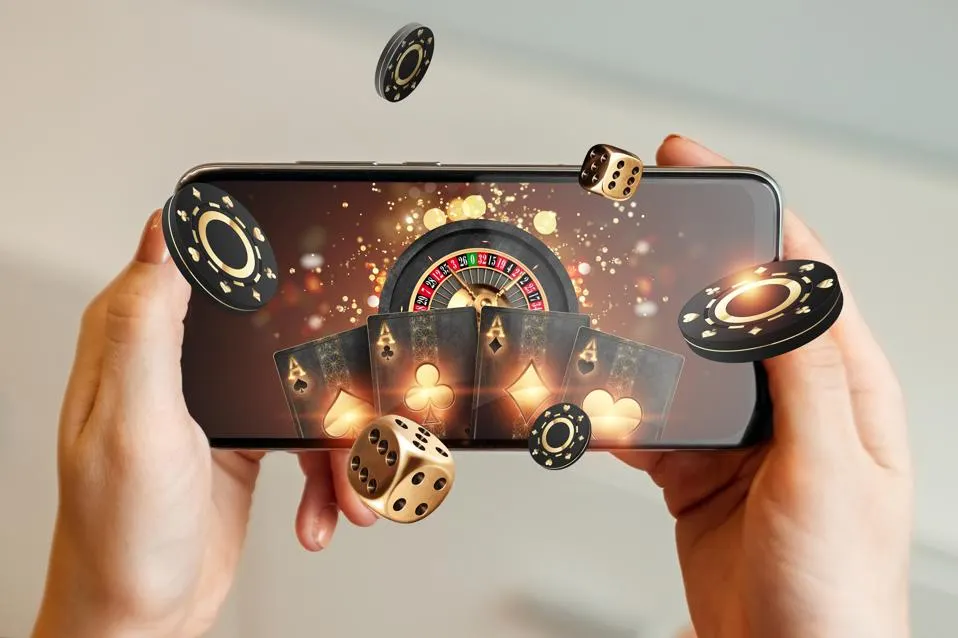The Hidden Exit Door: An Introduction
Not all disappearances are physical. In a world that rewards hyper-connectivity, one of the most profound retreats is not a move to a different country, but a quiet shift inward – into the glowing, silent comfort of a screen. For many, online casinos like visit casino-nomini.gr don’t just offer entertainment – they provide an emotional and cognitive refuge.
The disturbing truth is that a person can vanish into the world of online gambling without ever leaving their home, workplace, or social circle. They may attend dinner, reply to texts, even smile on video calls. But something essential has left the room: presence. This article dives deep into the psychology behind this phenomenon – why some players become invisible in their own lives and how gambling facilitates that escape.
Gambling as the Perfect Disappearing Act
The Interface as a Curtain
Unlike substance-based addictions, gambling – especially online – is often invisible. There are no smells, no slurred words, no missed work. The interface is sleek, clean, mobile. All you need is a phone and silence.
Behind the screen, however, is a deeply immersive experience. Slot animations, strategic bets, and dopamine-triggering sound effects become more engaging than real life. For some, gambling is the first time they’ve felt seen – not by others, but by a system designed to respond to every click, spin, and win with enthusiastic feedback.
The Allure of Anonymous Control
Power Without Vulnerability
In the real world, control often comes with responsibility: social roles, emotional labor, communication. But in the gambling space, especially on casino platforms, the user is king.
Every choice is solitary:
- You choose the game.
- You choose the stake.
- You choose when to stop.
And no one questions it. No judgment, no negotiation. The simplicity of this control becomes intoxicating – especially for people overwhelmed by the complexities of daily life.
Signs You’re Present but Absent
Functional Disappearance
Unlike dramatic withdrawal, this type of detachment is subtle. Common signs include:
- Watching a movie while playing slots with no memory of either.
- Being physically with family while mentally checking bonus rounds.
- Routinely skipping social events in favor of “quiet time,” which really means uninterrupted gambling.
This behavior can go unnoticed for months – even years – because it wears the mask of productivity or relaxation.
Why No One Notices: The Illusion of Functionality
The Mask of Stability
Many players who vanish emotionally remain functional:
- They go to work.
- They fulfill obligations.
- They remain outwardly cheerful.
This creates a tragic paradox: their decline isn’t marked by collapse, but by invisibility. Friends and family don’t intervene because nothing “seems” wrong.
Emotional Drivers Behind Digital Vanishing
1. Unresolved Trauma
For trauma survivors, gambling offers a structured environment that mimics chaos but within safe boundaries. The highs and lows are familiar, and therefore, oddly comforting.
2. Fear of Intimacy
Human relationships require vulnerability, compromise, and patience. Online casinos require none of these – and yet provide attention and reward.
3. Craving Solitude Without Loneliness
Gambling is a solitary activity that doesn’t feel lonely. The interface keeps you company. The wins make you feel accomplished. It’s a solitary game with social illusion.
Case Study – “He Was Still There, Just… Not Really”
Elena, 33, describes her partner’s slow withdrawal into the world of online betting:
“He still came to bed. Still made coffee. Still asked how my day was. But it felt like speaking through a filter. I realized months later – he wasn’t with me anymore. He was with his games. Quietly. Every night. Without saying a word.”
This testimony reflects a haunting truth: gambling allows for presence without connection.
Casino Platforms and Emotional Infrastructure
Feedback Loops and Positive Reinforcement
Platforms are designed with sophisticated behavioral triggers:
- Immediate feedback: Rewards and sounds simulate emotional connection.
- Gamification: Progress bars, leaderboards, and missions create a sense of purpose.
- 24/7 availability: There is no “off” switch – no closing hours, no social cues to leave.
This ecosystem creates a form of pseudo-reality, where the user feels “engaged,” while emotionally detaching from everything else.
The Fantasy World of Control
No One Says “No”
Real life is full of resistance: traffic, bureaucracy, other people’s feelings. In contrast, online casinos offer a world where:
- Your choices are absolute.
- Your failures are quiet.
- Your risks are yours alone.
The fantasy of absolute control becomes addictive for people who feel helpless in their day-to-day reality.
Emotional Safety and the Slot Machine
Predictable Chaos
Ironically, randomness in casino games feels more predictable than real life. You lose money – but it’s expected. You win – and it feels magical. But nothing surprises you emotionally. That sense of regulated chaos is comforting for many emotionally burned-out individuals.
Loneliness in Disguise: The Digital Friend
The Game as Companion
The screen becomes a friend:
- It’s always available.
- It never argues.
- It celebrates your wins and fades away after your losses.
This emotional asymmetry is seductive. The player projects emotions onto the game interface, forming an unspoken bond.
What Happens When the Disappeared Re-Emerge?
Post-Gambling Emotional Re-Entry
When players attempt to reintegrate into the real world – whether voluntarily or because of financial exhaustion – they face:
- Emotional numbness
- Difficulty with intimacy
- Resistance to boredom
The game conditioned them to constant stimulation. Real life, by contrast, feels dull and unrewarding.
Societal Blindness to “Functional Disappearance”
Because They’re Still Showing Up
Society often overlooks individuals who vanish emotionally because they continue to function externally. We don’t check on people unless they crash. But digital disconnection doesn’t require a crash – it’s often chronic and subtle.
From Invisible to Seen – The Recovery Arc
Step One: Awareness
The first sign of progress is noticing the pattern. Journaling or using gambling logs helps bring awareness to the time and emotion spent.
Step Two: Introduce Real Interactions
Rebuilding emotional connection starts with low-pressure human contact:
- Shared meals
- Calls with friends
- In-person hobbies
These micro-interactions reawaken a sense of presence.
Step Three: Create Interruptions in Ritual
Break the emotional ritual of gambling by adding new rituals:
- Meditation before gameplay
- Time limits with reminders
- Connecting each win to a real-world reward (like a walk or message to a friend)
Ethical Design: A New Horizon for Online Casinos
Can Casinos Help?
Responsible platforms are now investing in:
- Self-exclusion tools
- Session duration notifications
- Emotional prompts (e.g., “Take a break” messages)
Ethical UX design might be the next evolution of online casinos – one that recognizes emotional health as part of long-term player satisfaction.
Final Thought – Absence in the Age of Presence
We live in an age where absence doesn’t mean physical disappearance. A player can vanish into a world of slots, cards, and roulette wheels while sitting across from loved ones, while replying to emails, while functioning.
The real question isn’t where they are, but who is missing when they’re not present anymore.
Conclusion
The online casino world offers more than games – it offers a portal. For some, it becomes an emotional vacuum where they can disappear unnoticed. Understanding this form of disconnection is critical not just for players, but for friends, designers, and society at large.
If we can build platforms that help users stay emotionally visible – through reminders, design ethics, and support systems – we don’t just help prevent addiction. We help people remain human in a digital world that often rewards invisibility.





